Struggling to sell bottles to companies? Your pitch might be missing the point. They see more than just a container; they see a major branding opportunity.
Focus on how custom stainless steel bottles boost their brand image and sustainability goals. Show them it's a long-term marketing tool, not just a gift. This approach aligns with their corporate values and provides lasting, daily brand exposure for them.
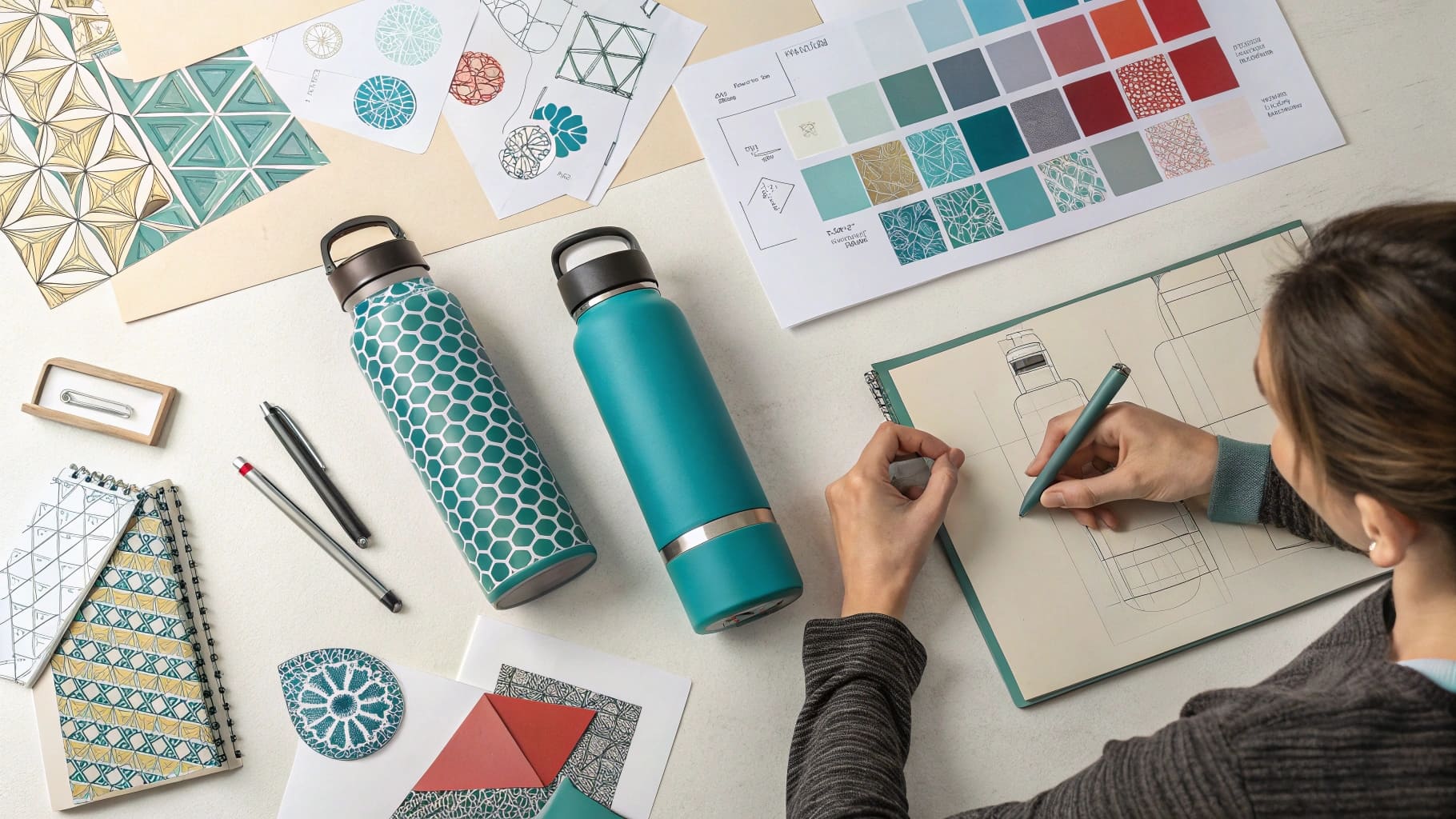
This sounds simple, but it's a big shift in thinking. I learned this from years of working with buyers like Mark Shenng from Canada. I remember our early conversations; he was always sharp and focused on price. But over time, I understood he wasn't just buying bottles. He was investing in his company's reputation. He needed a product that looked good, felt premium, and would last. Once I started talking about the bottle as a long-term asset for his brand, our conversations changed. He saw me as a partner, not just a supplier. Let's break down how you can use this same approach to win over corporate clients.
How Do You Really Promote a Water Bottle to a Business?
Tired of corporate clients seeing your bottles as just another cheap giveaway? This mindset costs you sales. You need to frame the product differently to win their budget.
Promote it as a mobile billboard. A high-quality, custom-branded bottle is used daily, offering constant brand exposure. It's a premium, practical gift that reflects the company's commitment to quality and its employees, making it a powerful marketing asset.

A New Perspective: The Bottle as a Marketing Tool
Corporate clients are hammered with requests for promotional items. Most of these items, like pens or stress balls, have a short life. They get lost, break, or are thrown away. A stainless steel water bottle is different. It's something people use every single day, for years. I once had a client tell me that an employee took their branded bottle on a hiking trip and posted a picture on social media. That one photo got more engagement than their last paid ad. That's the power you're selling. You have to shift the conversation from "cost per item" to "cost per impression." When you do that, the value becomes clear.
Calculating the True Value
Let's break down the value in a way a procurement officer can appreciate. They are used to spreadsheets and ROI calculations. So, give them the numbers. A bottle that is used daily at the office, in the gym, and on the go creates thousands of brand impressions over its lifetime.
| Promotional Item | Average Lifespan | Estimated Daily Views | Perceived Value |
|---|---|---|---|
| Custom S/S Bottle | 2+ Years | 5-10 | High |
| Branded T-Shirt | 6-12 Months | 3-5 | Medium |
| Company Pen | 1-3 Months | 1-2 | Low |
When you present it this way, a $10 bottle doesn't look like an expense. It looks like a smart, long-term marketing investment that outperforms other options.
What's the Latest Trend in Corporate Water Bottles?
Are your bottle designs feeling outdated? Corporate clients are smart and want what's new. Falling behind on trends means you're losing deals to more modern suppliers.
The biggest trend is deep customization combined with real sustainability. Clients want more than a logo. They ask for specific Pantone colors, unique finishes like powder coating, and verifiable proof of eco-friendly materials and ethical production.
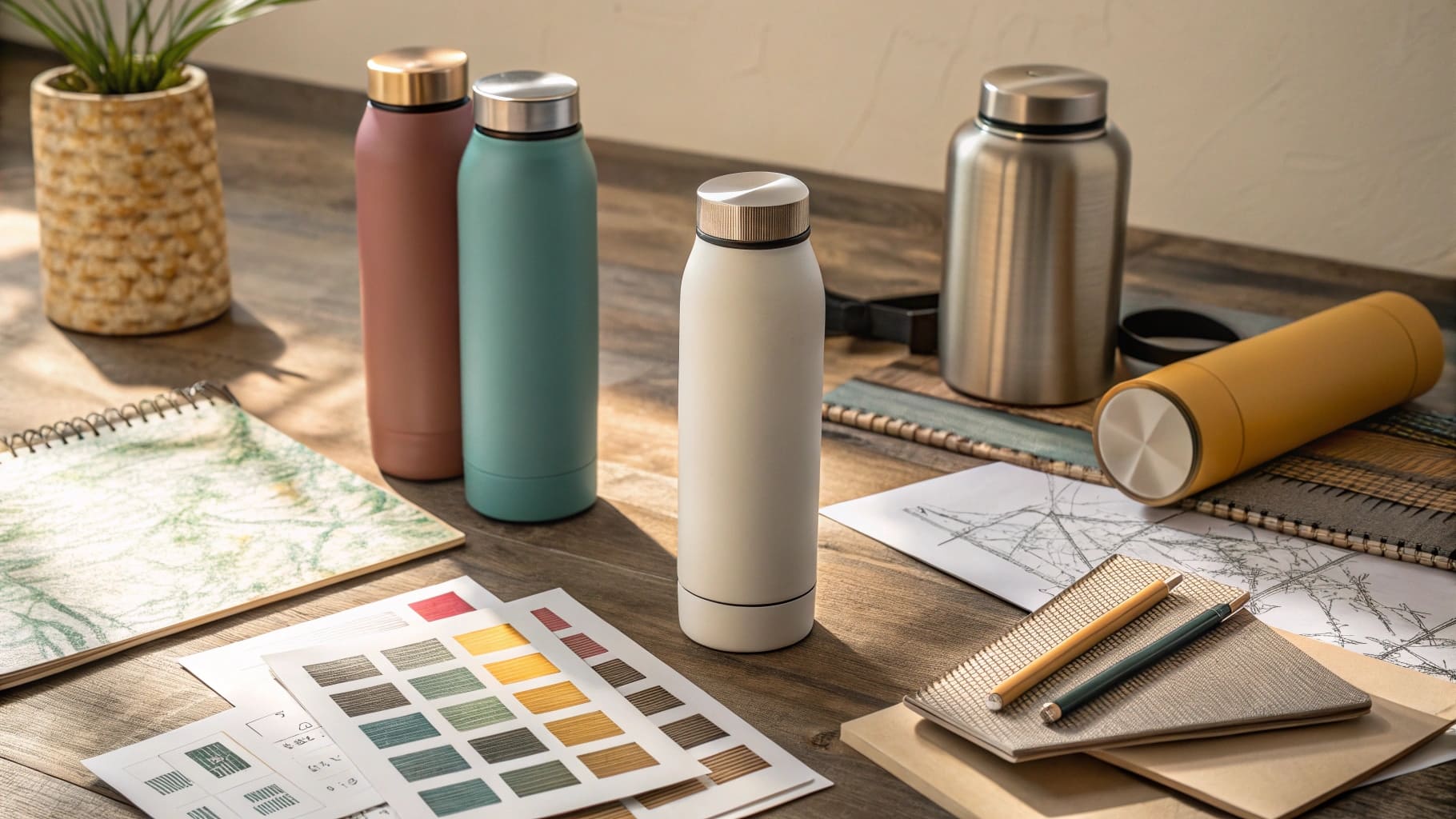
Customization is King
In the past, a simple logo print was enough. Not anymore. Today, corporate clients want to create a product that feels uniquely theirs. They are building a brand, and every detail matters. At my company, Icobottle, we get requests for very specific things. It’s not just about a logo anymore. Clients ask for exact Pantone color matching to align with their brand guidelines. They want different finishes, like a smooth matte look or a durable powder coat. They also want options for the lids and even custom packaging. This level of detail shows that they see the bottle as a premium product representing their brand, and you must have the capability to deliver it.
Proving Your Green Credentials
Sustainability is no longer just a buzzword; it's a requirement. I've seen a huge increase in clients asking for proof of our claims. Mark, my Canadian client, once had a bad experience with a supplier who gave him fake certificates. Now, he’s extra careful. Buyers like him want to see documentation for recycled materials, like our 90% post-consumer recycled 18/8 stainless steel. They ask about our packaging, wanting to avoid single-use plastics. They want to know that our factory is audited and follows ethical practices. Being transparent and providing verifiable proof is now essential to winning and keeping their trust.
What is the Overall Market Trend for Reusable Water Bottles Affecting Corporate Sales?
Feeling the pressure from companies asking about your eco-impact? This isn't just talk. Their ESG goals now directly influence their purchasing decisions. Are you ready to answer them?
The market is driven by corporate ESG (Environmental, Social, Governance) goals. Companies are actively working to reduce single-use plastic. They choose reusable bottles to show their commitment to sustainability, which improves their public image and meets internal green targets.
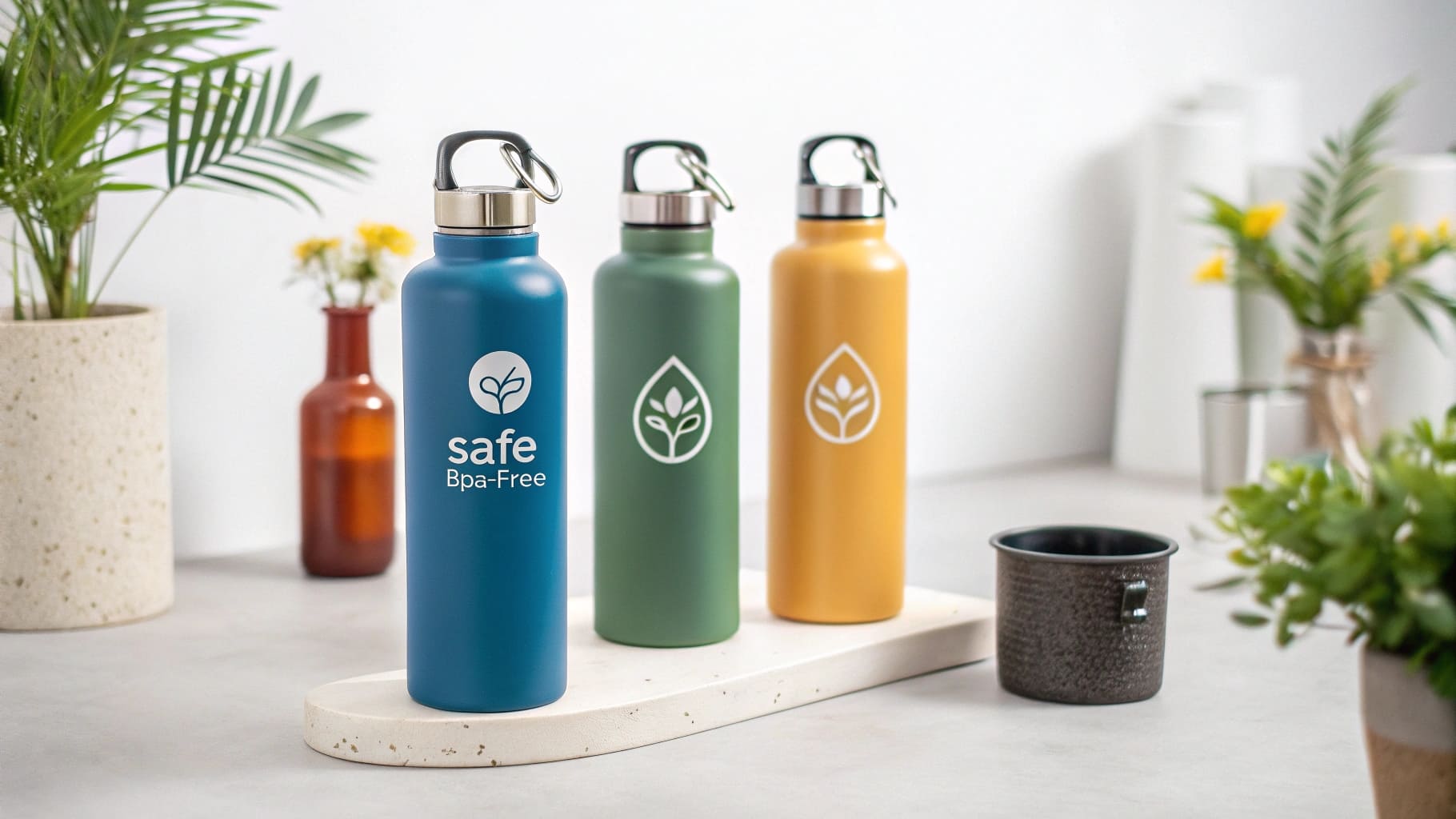
What ESG Means for Your Bottle Order
ESG sounds complicated, but it's simple. "Environmental" means they care about the planet. "Social" means they care about people, including the workers in my factory. "Governance" means they run their business ethically. For years, these were just ideas. Now, they are part of a company's official policy. When a European client asks me for a report on our factory's energy consumption, they are doing their ESG homework. A stainless steel bottle is an easy and visible way for them to meet their 'E' goals. It physically shows their commitment to reducing plastic waste.
From Nice-to-Have to Must-Have
A few years ago, a sustainable product was a "nice-to-have" bonus. Now, for many companies in America and Europe, it's a "must-have." They have public targets to reduce their carbon footprint and plastic use. A procurement officer might get an order from their board of directors to only source sustainable products. If your bottles don't come with proof of being eco-friendly, you won't even be considered for the order. This is a fundamental market shift. You are no longer just selling a bottle; you are selling a solution that helps them meet their corporate responsibilities.
Who Are You Actually Selling to Within a Corporation?
Sending your emails to a general info@ address? You're likely being ignored. To make a sale, you need to find and talk to the right person inside the company.
Your target audience has three key players. Marketing Managers need it for branding. HR Managers want it for employee wellness and onboarding. Procurement Officers look for the best value, quality, and supplier reliability. Each needs a slightly different pitch.
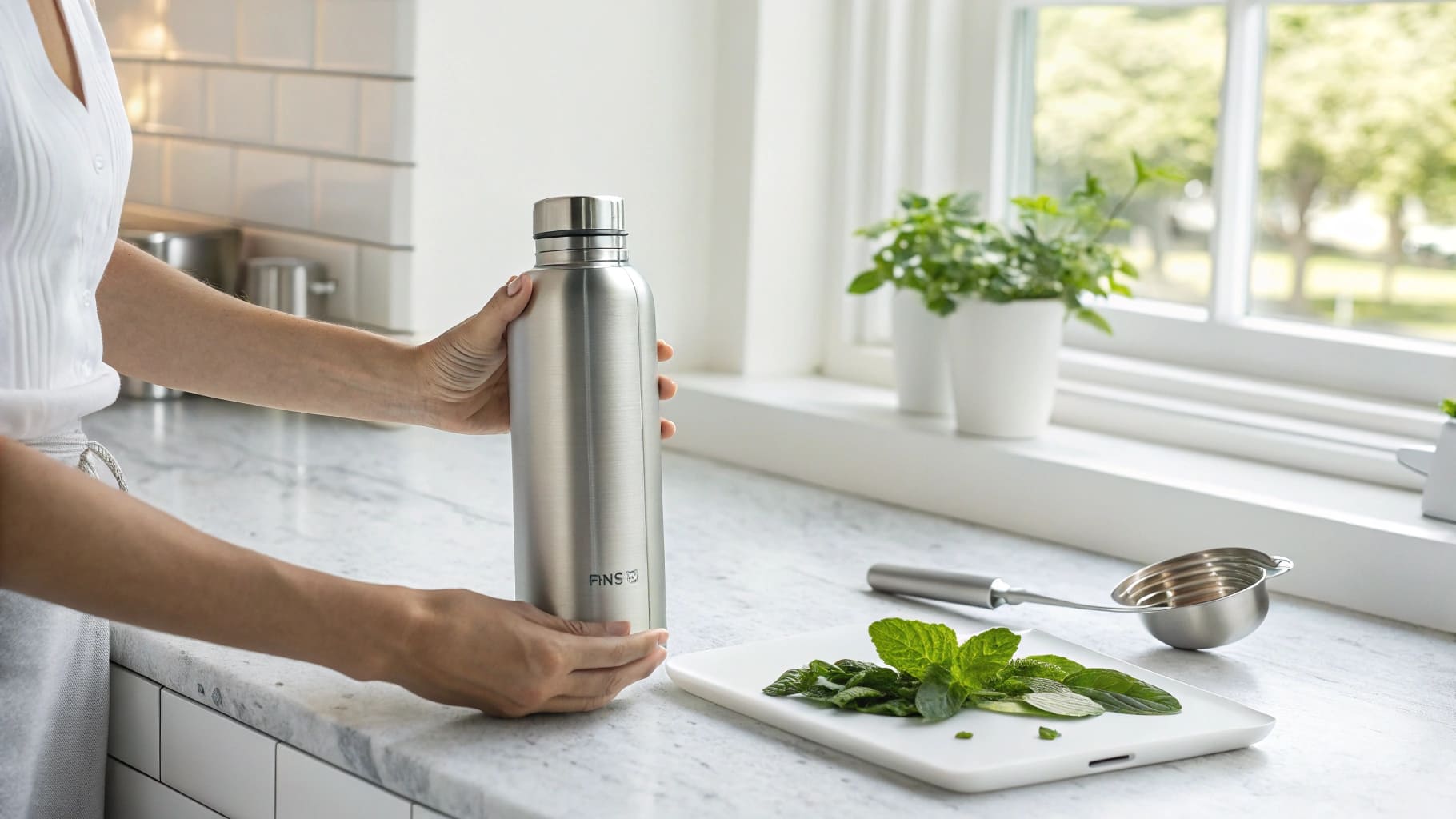
Speaking Their Language
You can't use the same sales pitch for everyone. Each contact person inside a company has different goals and pressures. I learned to tailor my message depending on who I was talking to. If I'm speaking with someone from the marketing department, I talk about brand impressions and ROI. If I'm talking to Human Resources, I talk about employee morale and making new hires feel welcome. And when I talk to a procurement officer like Mark, I focus on quality, reliability, logistics, and, of course, competitive pricing. Understanding their specific needs shows that you are a professional who has done your homework.
Matching Your Pitch to the Person
To make it easy, think about it like this. You need to connect your product's features to their specific needs. Here's a simple guide I use in my own mind before I write an email or make a call:
| Role | Their Main Priority | Your Best Pitch |
|---|---|---|
| Marketing Manager | Brand Exposure, ROI | "This bottle is a mobile ad for your brand that lasts for years." |
| HR Manager | Employee Morale, Welcome Gifts | "A premium gift that shows you truly value your team." |
| Procurement Officer | Quality, Price, Reliability | "Top quality, fully certified, and delivered on time. Here is our QC process." |
When you speak their language, they are much more likely to listen. They see you as a partner who can solve their specific problem.
What Does the Future Hold for Corporate Branded Water Bottles?
Worried that the branded water bottle is just a fad? You don't want to invest in a product with a short shelf life. Let's look at the facts.
The future is very strong. Their durability makes them a cost-effective, long-term marketing investment. As companies double down on sustainability and employee engagement, high-quality, eco-conscious stainless steel bottles will remain a top choice for corporate gifting.
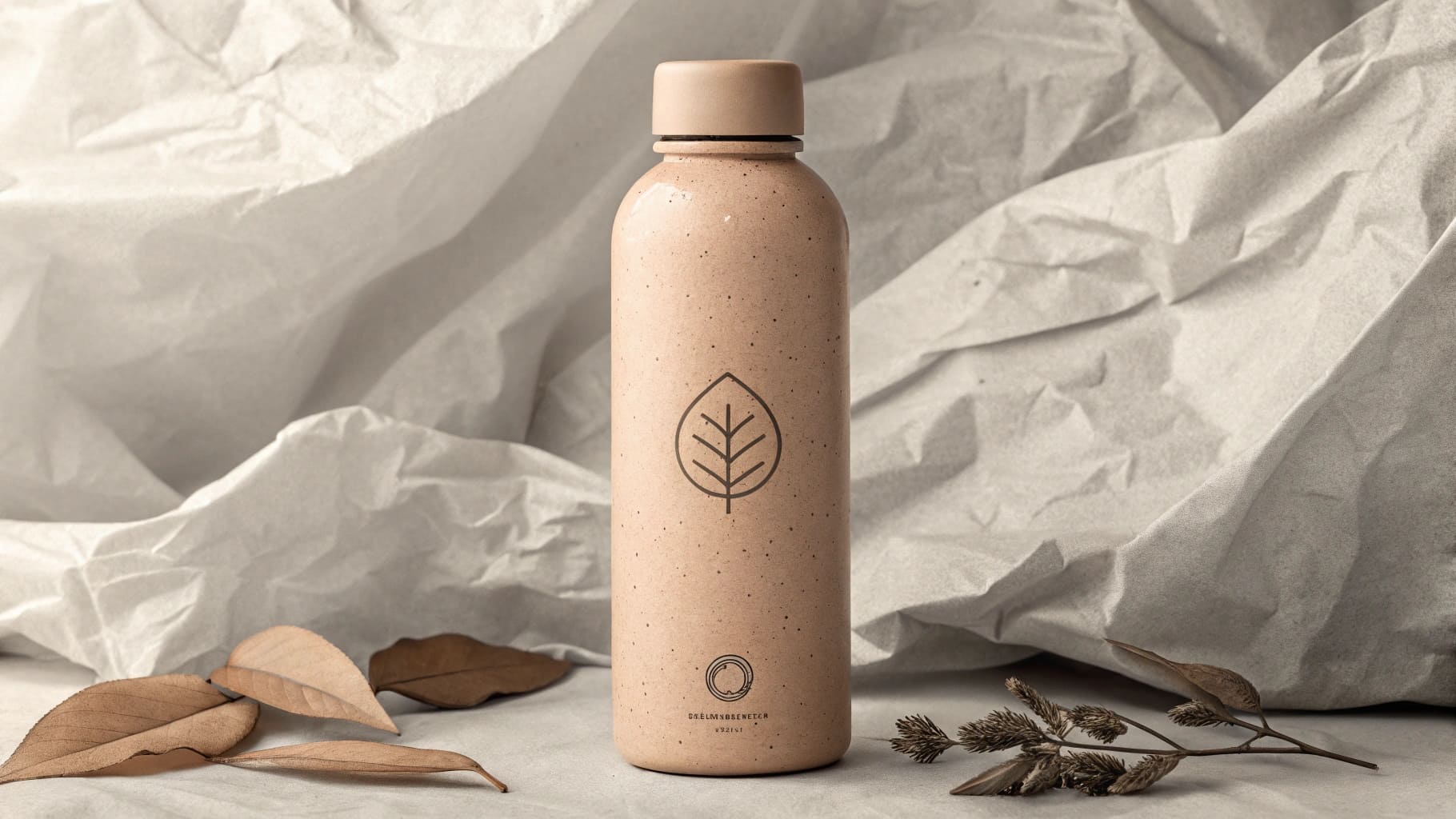
A Long-Term Investment in Brand
The stainless steel bottle is not a short-term trend. It has become a staple product because it solves two big corporate needs at once: the need for effective marketing and the need to be more sustainable. Unlike tech gadgets that become obsolete, a well-made bottle is timeless. It will be used for years, making the initial cost incredibly low when spread out over its lifespan. Companies understand this. They see that a durable, useful item provides much better value than a disposable one. This is why the demand continues to grow. It's a safe and smart choice for their brand.
What's Next? Smart Tech and Materials
The market will continue to evolve. Here in China, from the manufacturing side, we are already seeing the next wave of innovation. Some clients are asking about "smart" bottles that can track hydration and connect to an app. This is perfect for corporate wellness programs. There is also a lot of research into new materials and coatings. Think about bottles made from even higher percentages of recycled steel or new plant-based coatings. As a supplier, staying on top of these innovations is key. For buyers, it means this product category will only get more interesting and effective as a branding tool in the future.
Conclusion
To win corporate clients, sell stainless steel bottles as a branding investment. Focus on deep customization and real sustainability. This approach secures trust and builds long-term business success.

